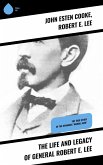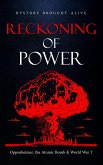J. Robert Oppenheimer, a brilliant physicist, became synonymous with the development of the atomic bomb during
World War II as the scientific leader of the
Manhattan Project. His intellect and leadership were pivotal in harnessing nuclear fission to create the first
atomic weapons, culminating in the bombings of
Hiroshima and Nagasaki. Post-war,
Oppenheimer grappled with the moral implications of his work. He advocated for international control of
nuclear weapons and opposed the development of the more powerful hydrogen bomb, which put him at odds with military and political leaders. However, his past associations with communist sympathizers and his opposition to certain nuclear policies led to a controversial security clearance hearing in 1954, where his clearance was ultimately revoked. This event cast a shadow over his later years, despite his continued contributions to theoretical physics.
Oppenheimer's legacy remains complex and multifaceted: he is revered for his scientific genius and wartime contributions, yet his life also serves as a cautionary tale about the ethical dilemmas and personal sacrifices inherent in the pursuit of scientific discovery amidst the pressures of global conflict and political intrigue.
Dieser Download kann aus rechtlichen Gründen nur mit Rechnungsadresse in A, B, CY, CZ, D, DK, EW, E, FIN, F, GR, H, IRL, I, LT, L, LR, M, NL, PL, P, R, S, SLO, SK ausgeliefert werden.









